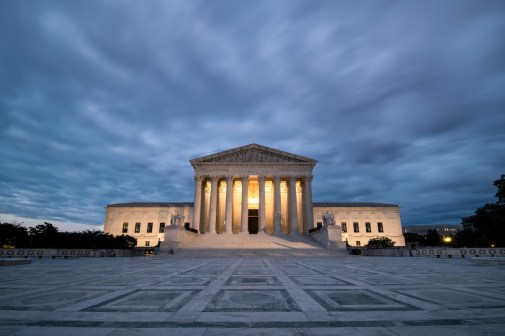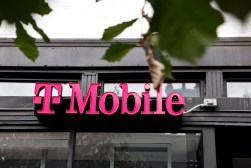T-Mobile vs. a Georgia city council reaches Supreme Court
A legal face-off between T-Mobile and a Georgia city council, now before the Supreme Court, could carry far-reaching implications for how local governments may act under federal laws, especially when it comes to the communications industry.
The case involves the City Council of Roswell, Georgia, and the council’s decision in 2010 to deny T-Mobile’s request to build a cellphone tower dressed up to resemble an oversize Georgia pine. At issue is how far a city government must go in explaining its decision.
The council’s decision was made during a public hearing. Experts, members of the public and members of the city council had the opportunity to speak on the pros and cons of the cell tower permit. But council members decided at the end of the hearing to turn down T-Mobile’s request.
Under the Telecommunications Act of 1996, a local government deciding on matters such as the permitting of cellphone tower must issue its decision in writing.
Roswell City Council members, however, argued that the city provided the cell phone carrier the minutes and transcript of the hearing — enough in their view to constitute their decision “in writing.”
T-Mobile objected — and a district court agreed — that a transcript didn’t adequately provide the council’s reasons for its decision. But the U.S. Court of Appeals for the 11th Circuit reversed that ruling and held that the transcript provided adequate indication of the council’s reasons.
Oral arguments for the case were present to the Supreme Court on Monday.
As Noah Feldman, a professor of constitutional and international law at Harvard University sees it, the case brings to light the complicated nature of city governments.
“If the decision to deny the permit had been issued by a federal regulatory agency, there’s no question that the agency would have to give express reasons to support its decision, not just provide a transcript of its hearing,” writes Feldman in a column for Bloomberg View.
But city councils are different. They are a legislative body. As a matter of statutory logic and constitutional principle, Feldman says, a city council shouldn’t have to write up a separate explanation of its actions. It’s enough that the council held a hearing and voted.
“But the case is actually more complicated,” he contends. Even though a city council is “a kind of mini-legislature,” in this case, it was also acting “under complicated federal law that creates a comprehensive regulatory structure for the telecommunications industry.”
Whichever perspective Supreme Court ultimately supports — the Roswell City Council or T-Mobile — the case promises to put a fresh spotlight on the nation’s ongoing debate over the balance of power between local and federal government.






